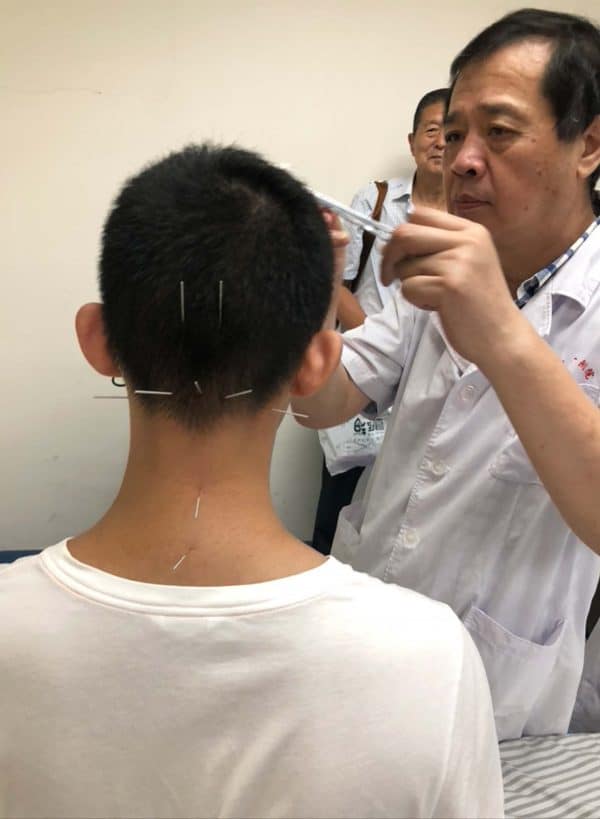Research One
OBJECTIVE:
To investigate the efficacy of acupuncture treatment on depressive symptoms and myalgia in patients with hepatitis.
METHODS:
Of 44 patients with hepatitis screened for depression and myalgia, 28 were enrolled and included in the study. The main outcome measure for depressive symptoms was Beck’s Depression Inventory (BDI). For pain/myalgia, patients rated their pain on a scale from 0 to 10. Patients with a score greater than the cut-off point in either score were allocated to acupuncture treatment. The Chinese method of acupuncture was used. Treatment continued for 6 weeks.

Patient receiving Acupuncture for Depression
RESULTS:
At baseline, 17/44 patients (39%) had a BDI score ≥17 and 24 (55%) had a pain score ≥5. A total of 28 patients were allocated to acupuncture treatment, forming three groups: group 1, 13 patients with high BDI and high myalgia scores; group 2, 11 patients with low BDI score but high myalgia score; group 3, 4 patients with high BDI score but low myalgia score. Adherence to treatment was good; all patients completed the sessions and there were no drop-outs. Significant improvements in end-treatment BDI and in myalgia scores compared with baseline levels were found.
CONCLUSION:
Acupuncture seems to be a promising treatment for patients with hepatitis. Further studies are warranted in large populations to establish the therapeutic role of acupuncture.
Research Two
Acupuncture for Depression
P04.56. Acupoint versus non-acupoint injection of antiviral treatment for chronic hepatitis B: a systematic review of randomized controlled trials
Acupoint injection of interferon-alpha showed a significantly better effect on the loss of serum HBeAg than intramuscular injection (RR 1.37, 95% confidence interval (CI) 1.10 to 1.70; 3 trials). Similarly, acupoint injection of interferon-alpha was better than intravenous infusion for loss of serum HBeAg (RR 2.38, 95% CI 1.17 to 4.83; 3 trials). However, there was no significant difference between acupoint and intramuscular injection of interferon-alpha in terms of the loss of serum HBsAg or HBV DNA. Acupoint injection of poly I-C, or matrine showed beneficial effects on loss of serum HBeAg compared with intramuscular injection. Acupoint injection of antiviral drugs did not report extra adverse effects from the included trials.
Conclusion
Acupoint injection of antiviral drugs for three months of treatment for chronic hepatitis B may have more beneficial effects than intramuscular or intravenous injection.